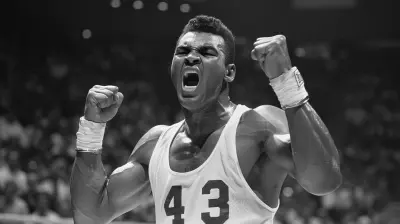The Role of Fitness and Stamina in the Final Minutes of the Game
25 June 2025
You know that feeling, right? It’s the 88th minute. The fans are on the edge of their seats, the clock’s ticking like a time bomb, and silence falls over the crowd between bursts of roaring noise. Everything boils down to these final moments—the finish line in sight, yet your legs scream for mercy. This is the heartbeat of sports, the climax where champions rise and the unprepared crumble. And it all comes down to one thing: fitness and stamina.
Yeah, tactics are flashy and skills are essential, but when the going gets tough and your body feels like lead, it’s your conditioning—the grit you've built in those unseen hours—that decides whether you thrive or merely survive.
Let’s dive deep into why those final minutes are so dramatically dictated by the athlete’s fitness and stamina, and how they shape legends on the field.
🏃♂️ When Muscles Burn and Minds Begin to Bluff
Ever played a full-length soccer match or pushed through a five-set tennis thriller? Then you’ve met the wall. That invisible, soul-sapping barrier where your legs beg for relief, your lungs feel like fire, and your brain starts whispering, “Maybe this is enough.”But here’s the twist—matches are often won or lost after you hit that wall.
Why?
Because while skill sets the stage, it’s stamina that delivers the encore.
In those dying minutes, when everyone’s exhausted, the fittest players don’t just hang on—they steal the show. They make the last-minute runs, get into perfect positions, or track back when others are too gassed to follow.
🧠 The Mind-Body Connection: Mental Clarity Under Physical Duress
Let’s be real: fatigue doesn’t just hit your legs. It fogs up your brain, too. Decision-making in sports is lightning-quick. One wrong pass, one missed mark, one mistimed jump—it can all fall apart.Late in the game, your brain is battling your body. But if your fitness is top-tier, you're not just physically sharper—you think faster, stay composed, and make magic happen when it matters most.
Tired minds make tired decisions. Stamina keeps your thoughts clear so your instincts stay sharp.
⚽ Crunch Time Moments: When Conditioning Becomes Game-Winning
Let’s paint a picture:- It’s the 94th minute.
- Your team’s drawing 1-1.
- Everyone's dragging their cleats through mud.
- Then boom—a sudden sprint down the wing, a pinpoint cross, a header, GOAL!
Ever wonder how that even happens?
That spark doesn’t come from talent alone. It rises from relentless training, a heart bursting with cardio capacity, and lungs that refuse to quit.
In sports like basketball, football, rugby, and soccer, conditioning is your MVP in clutch time. It's what allows the star midfielder to track back in stoppage time or the wide receiver to accelerate past defenders in the last seconds.
Without stamina? That play never happens.
🏋️♀️ Behind the Glory: The Grueling Training It Takes
Let’s not sugarcoat it—building stamina is hard. It’s early morning runs, endless laps, HIIT sessions that leave you sprawled on the gym floor, and nutrition plans so strict they make cheat days feel like holidays.But there’s a poetic beauty in it, too. Every drop of sweat you lose at practice is a second you gain when the clock’s winding down.
And while fans see the highlight reels, the unseen grind is where real glory grows.
Incorporating drills like fartlek runs, small-sided games, and circuit training builds more than muscles—it builds moments that matter. Those final-minute goals? They're born in preseason sprints and late-night gym sessions no one claps for.
🕒 Stamina vs. Fatigue: The Silent Battle Within
Here’s the real kicker: fatigue doesn’t just make you slow down—it makes you vulnerable.- You start biting on pump fakes.
- You lose defensive shape.
- You hesitate where earlier you’d charge.
Fatigue is the shadow opponent watching your every move. And the only way to beat it? Outfit it with fitness.
Stamina is your built-in armor. It keeps your muscles oxygenated, your reactions crisp, and your composure intact. It’s the shield that blocks the creeping doubt that exhaustion invites.
🎯 The Science of Last-Minute Athletic Excellence
Let’s geek out for a second.When you're gassed, your body switches energy sources. You start burning through glycogen, lactic acid builds up, and your nervous system is working overtime to keep everything coordinated.
But athletes with high aerobic and anaerobic thresholds? They can operate at higher intensities for longer without tipping into full-blown fatigue.
Think of it like a smartphone. Most players are on low battery mode after 70 minutes. But the well-conditioned ones? They’ve got Power Saving Mode off and full brightness on at minute 90.
That difference? Science + sweat.
🧬 Genetics vs. Grind: Is Stamina Born or Built?
“Maybe they’re just naturally fit.”Ever heard that?
Sure, genetics play a role. Some athletes are born with a bigger engine—a heart that pumps more blood, lungs that take in more air. But here’s the truth bomb: fitness can be built. It's not a gift; it's a grind.
The key? Consistency. Smart programming. Recovery. Sleep. And yes, embracing the suck.
You don’t have to be born with it. You just have to work for it.
🥵 Pressure-Cooker Moments: When the Mind Survives Through the Body
We often talk about mental toughness like it’s this standalone trait. But here's the kicker: your brain depends on your body to stay sharp under pressure.In those final moments when you're being pressed, heckled, tackled, or hunted, the ability to stay calm, analyze the situation, and execute—all that comes easier when your body’s not crying for help.
Mental strength = physical preparation + emotional control.
And guess what helps with emotional control? Not being dead tired.
Funny how it all links, right?
🔁 Recovery: The Secret Weapon of the Fittest Players
You can’t talk about fitness without talking about recovery. The best athletes don’t just train hard—they recover smarter.- Ice baths
- Compression therapy
- Sleep (8+ hours, non-negotiable)
- Hydration and tailored nutrition
Recovery isn’t a buzzword—it’s a performance enhancer. It’s what allows elite players to stay sharp, game after game, minute after minute.
You can't pour from an empty tank. And in those final minutes? You want a tank that’s overflowing.
💥 Legendary Final-Moment Performances (Fueled by Fitness)
Let’s rewind to some wild endings:- Remember LeBron’s chase-down block in Game 7 of the 2016 NBA Finals? Pure stamina.
- What about Luka Modrić bossing the midfield deep into extra time at the 2018 World Cup? Elite endurance.
- Or Tom Brady executing a perfect two-minute drill over and over? Mental clarity through physical discipline.
These aren’t flukes. They’re the result of years—decades—of conditioning, both mental and physical.
You want to shine in crunch time? Train like your legacy depends on it. Because it does.
🧠 So, What Can You Learn as a Weekend Warrior?
Maybe you’re not in the World Cup final, but hey—pickup games, weekend runs, local tournaments—they matter to you.And you know what? The same rules apply.
- Want to finish strong and not crawl to the bench? Build that base.
- Want to hit that game-winning shot without your hands shaking? Train your engine.
- Want to feel like a beast at the end instead of a burden? Prioritize your stamina.
It’s not just about playing longer—it’s about playing better when everyone else is fading.
That’s your edge.
🚀 Takeaway: The Last Minutes Are Where Legends Are Made
Here’s the truth, plain and simple: Talent’s flashy, but stamina wins games.When the scoreboard’s tight and the seconds are slipping away, your legs don’t lie. Either they’ve been built for this, or they haven’t.
Either you’re the hero in the final stanza, or you're just watching it unfold, wishing you had one more ounce of gas in the tank.
So next time you lace up, run that extra mile. Do the extra set. Get the sleep. Fuel right.
Because greatness isn’t decided in the first minute—it’s claimed in the last.
all images in this post were generated using AI tools
Category:
Game AnalysisAuthor:

Preston Wilkins
Discussion
rate this article
2 comments
Brooke Powell
Great insights! Fitness and stamina are crucial in those final moments, often determining the outcome of the game. Players who push through fatigue can secure victory.
November 19, 2025 at 12:38 PM

Preston Wilkins
Thank you! Absolutely, fitness and stamina are vital in those critical moments, often making the difference between winning and losing.
Lindsey Thornton
Great article! It's fascinating how fitness and stamina can make or break a game in those nail-biting final minutes. Players' endurance truly shines when the pressure is on. Keep up the awesome insights!
July 4, 2025 at 3:21 AM

Preston Wilkins
Thank you! I’m glad you found the article insightful. Fitness and stamina are indeed crucial in those intense moments!


